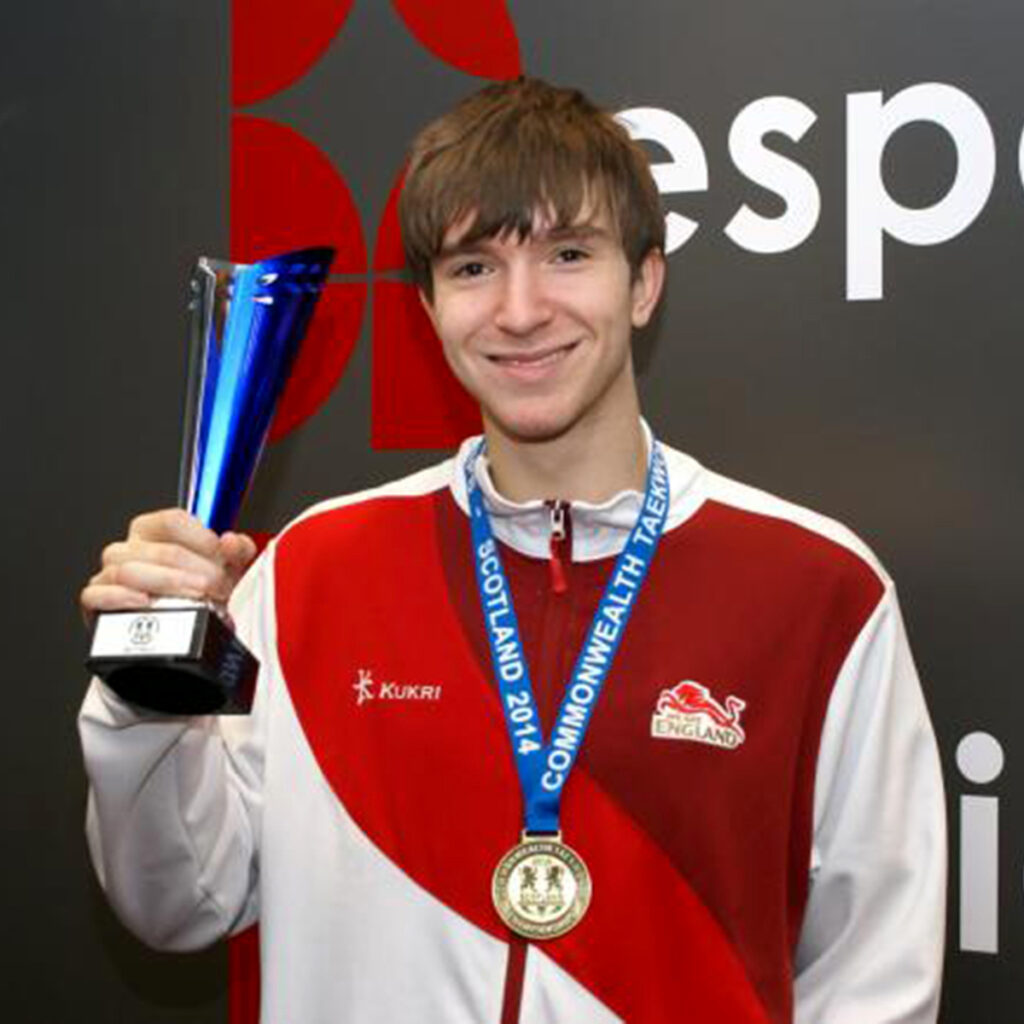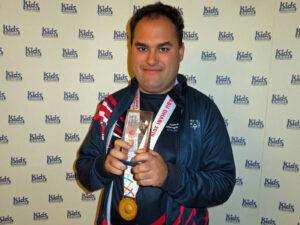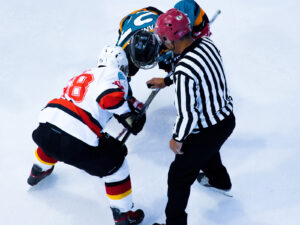Thomas Henley: A step at a time

In the summer of 2014, Thomas Henley made it to the Commonwealth Games taekwondo final in Glasgow.
Although Thomas was significantly smaller and lighter than his opponent, he had become used to feeling like the underdog, be it from the bullying he received at school or his own battles with mental health conditions.
But he won the gold medal. Not only that, he was also voted the Best Male Fighter in the Commonwealth by the Games’ officials, continuing to break barriers as a neurodiverse athlete in mainstream competition.
It is an achievement that Thomas still holds dear to this day, and rightly so, but he never needed a Commonwealth gold medal to prove his worth or feel like a champion.
Sport has provided him and many others around the world with that ‘winning’ sensation every day, even if starting a sport may seem daunting at first.
“Take it easy for the first few months, just go there to learn and not to show your potential or physical attributes,” said Thomas. “Observe how the more advanced people work and socialise together, and over time you will get a feeling for it, your skills will improve, and you will feel more confident in that area.
“The anxiety that comes for autistic people in sport is tough to deal with, but having the courage to face scary things on your own terms is better than facing them on somebody else’s – that’s my best piece of advice.
“Sport was the one thing that pulled my life together. It gave me a very stable environment in which to build my social skills with all the endorphins that come from exercising, but it also gave me a big outlet in school.
“If I was having a tough day or someone was picking on me, I could go to train with some of the best fighters in the area.
“I was able to emulate that sense of confrontation when I wanted to in a competition environment, rather than letting people steamroll me in other areas of my life, and being able to face those things gave me a lot of courage.
“There is a certain shine about sport as its very much based on how much effort you put into it – you could be the quietest person in the room but be the best at what you do and rise through the ranks because of that – which is great.”
His commitment to martial arts was combined with a passion for other cultures, having been inspired to take up taekwondo – a sport that originates from Korea and uses Korean language – from Japanese anime characters and their determination to bring the best out of themselves.
Since then, Thomas has enjoyed time as an exchange student in Japan and also spent a year abroad in Thailand to study mosquitos for university and travel with friends and family.
“Some people are tentative about following their interests, but there is immense potential in autistic people who follow those interests or draw upon the skills that pursuing that passion has given them.
“Being able to listen to someone’s opinion is a great way to expand your knowledge base on a certain topic, not necessarily by using it as your own opinion, but to bolster your own progression and development.
“Personal development is important in all the work that I do. I always encourage people to work on themselves and the areas that they struggle with, giving examples of how I have changed my life from the effort I have put in.
“If you’re lost and feel you don’t have the skills or abilities you need to be successful, working to develop them regularly always has productive outcomes.
“I’m not one for the ‘find yourself’ mentality; I believe in the ‘create yourself’ mentality. There are things that you can’t change, but you can understand them better through personal development and sport is a great avenue for that.”
Taekwondo fundamentally involves kicking your opponent from a distance to score points, which suited Thomas, who relished combat sports just as much as his own space.
“Sport was the one thing that pulled my life together. It gave me a very stable environment in which to build my social skills with all the endorphins that come from exercising, but it also gave me a big outlet in school.”
Thomas Henley
The 24-year-old is not currently fighting competitively, but by using sport as a means to grow, he has been able to try more activities that he would not have considered before.
“As I have got older, I’ve got smarter and more confident about fighting in those close-quarters situations. It’s something that I want to work on and try to desensitise myself from.
“I doubt I will be going into any sport where you hold people, like judo or grappling, but I was boxing for eight months prior to when we went into lockdown. It seems to be something I can deal with and will be good to pursue for my own improvement in combat sports, having also studied Thai boxing in Thailand.
“But the lockdowns have put a spanner in the works; it’s difficult being autistic and having these constant routine changes and uncertainties as they throw off my ability to do things.
“I’m looking forward to getting back to the gym and getting rid of some excess energy – something that everyone who goes to the gym wants. There is nothing quite like exercise for helping with my depression and anxiety disorders, to being the central thing that I need in order to flourish in other areas of life.”
Since the start of the COVID-19 pandemic, he has dedicated extra time to his YouTube channel and ThoughtyAuty podcast, as well as piecing together his final-year university project – a documentary called Asperger’s in Society.
Thomas received the Covid Autism Leader Award from support organisation Dimensions in January, which has provided further motivation to keep sharing his experiences with autism and mental health.
“Everybody has their own take on what autism is to them. The range of opinions gives me a more wholesome overview of what people think about mental health and autism, and the knowledge that people can talk openly about them, which is important.
“Autism has given me a different way of approaching sport. My fixation on routines allowed me to train on a more regular basis than my competitors who perhaps lacked that concentration.
“It also allowed my interest to flourish outside of sports participation and into sports psychology, exercise, and training regimes. There are a lot of benefits of having autism, but it is very dependent on the person and their particular traits.
“I don’t like making eye contact with people, especially not when I’m fighting. Using my peripheral vision makes it difficult for opponents to tell what I will do in a fight.
“In my early life I was a competitive swimmer and played a lot of tennis and badminton. My mum was particularly supportive in getting me into sports for the social aspects and the benefits of motor skills.
“Sport helped me find my inner confidence. It didn’t define me as a person, but was an avenue for me to go down to improve myself in certain areas and build my personality in my own way.”


